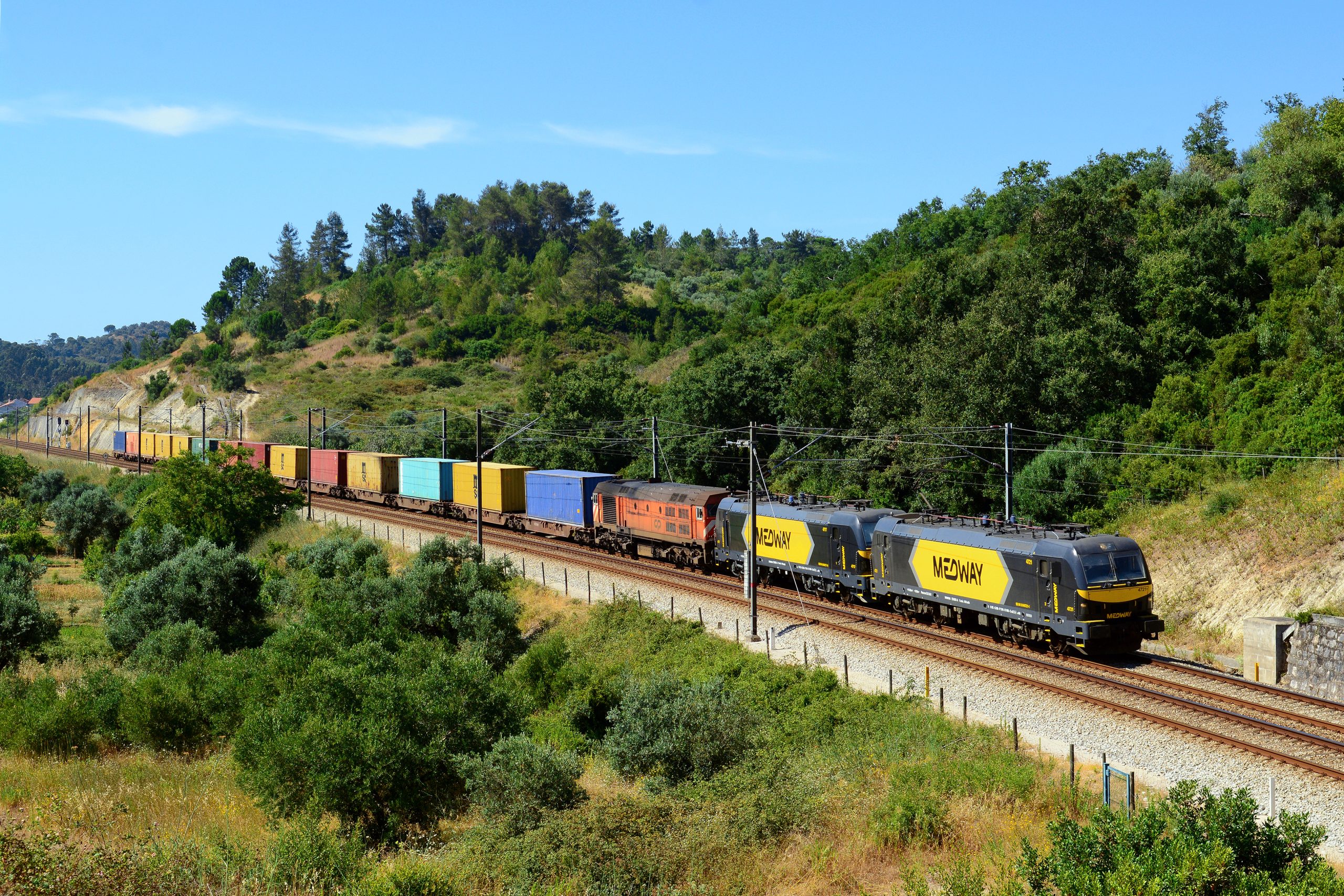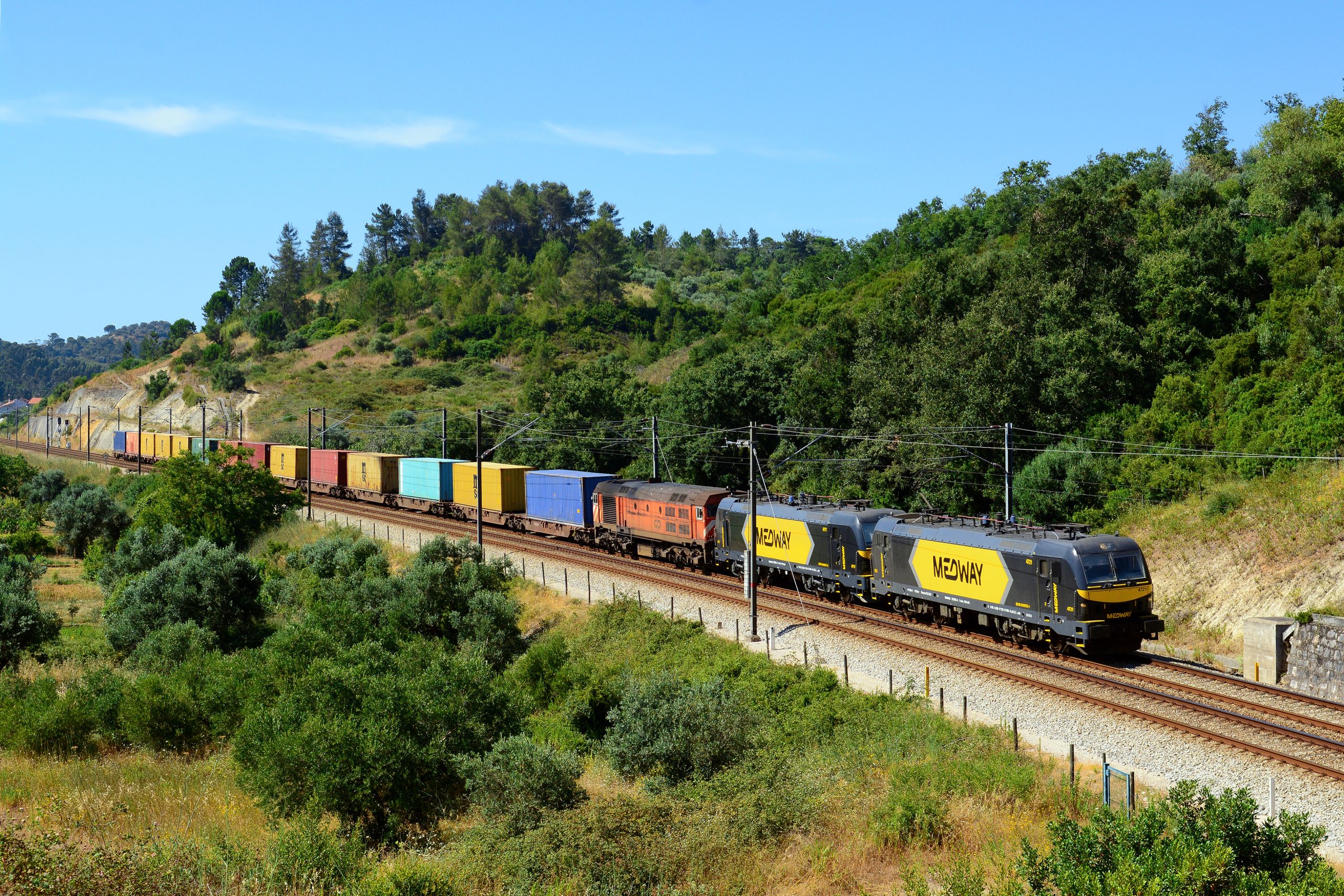The rail freight sector in Portugal is somewhat of a unicum in the European Union. Just like in Spain, the railway network is equipped with the Iberian gauge (1,668mm). Moreover, there is no state-owned rail freight operator in the country, unlike most of the other EU Member States. The Portuguese Mobility and Transport Authority (AMT), part of the national government, compiled a study on the developments of the rail sector between 2020 and 2022. This study showed that volumes have been decreasing and that the rail freight sector in the country is quite unsatisfied.
When it comes to rail freight, there are two private operators monopolising the sector: Medway, which holds the largest slice of the pie, and Takargo. The study claimed there has been a general decrease in the number of freight trains running through Portugal, from almost 36,000 in 2019 to less than 30,000 in 2022. The decrease also affected both the tonnes transported by each convoy (-12 per cent) as well as the distance they travelled (-7 per cent). Concerning the types of goods moved by rail, the AMT study divided them following the NST Classification. Container transport (NST 18) dominates the scene with 55 per cent of the total for 2022. The second place goes to the so-called NST 6 type, which includes wood and paper products, with 13 per cent. Metal (NST 10) and mining products (NST 3) both share bottom step of the podium, each holding 10 per cent of the total.
A highly unsatisfied sector
The AMT included in the study a survey it conducted on behalf of the Competition Authority in 2019. The main conclusion for rail freight was that “there was a general feeling of dissatisfaction with the service” The survey was sent out to rail freight companies and associations. The overall quality of rail freight services in Portugal was rated as unsatisfactory by 63 per cent of the companies and 70 per cent of the associations surveyed.
Back then, the sector was not ecstatic about the evolution of quality of service either, with 93 per cent of the companies and 71 per cent of the associations claiming it remained the same or worsened. The AMT carried out another survey in the last quarter of 2021. Despite not providing specific numbers about the freight sector, the study underlined that respondents felt the situation improved compared to 2019 “both in terms of railway infrastructure and service facilities”.

Medway and Takargo/Captrain Portugal
Rail freight services throughout Portugal are offered by Medway, owned by shipping giant MSC, and Takargo. After announcing it in March 2022, Takargo finally became part of the Captrain cluster, owned by the French state-owned railway holding SNCF, at the beginning of this year, rebranding to Captrain Portugal. In 2019, Medway operated 85,3 per cent of the freight trains in the country, with the remaining 14,7 per cent going to Takargo. In 2022, the numbers slightly shifted in favour of Takargo, which rose to 23,5 per cent, with Medway still holding a large majority of the market with 76,5 per cent.
Track access charges
The AMT study mentioned that “there was a continuous and consistent increase in the costs of managing the railway infrastructure”. To make up for these increases, the Portuguese infrastructure manager Infraestruturas de Portugal (IP) implemented new tariffs concerning the Minimum Access Package for track access charges in 2020. For rail freight, this translated into an 11 per cent reduction of the fee compared to 2019, the study said. However, the fee will increase since the new tariff model entails a progressive application factor spread over the next 10 years. This initiative, according to the study, “aims to minimize the initial financial impact of this new tariff system” for rail freight operators.
To this end, the AMT recommended the creation of a new programme contract with IP that would reformulate the indicators and targets as well as the methodology applicable to the calculation of overall deviations. The former shall incentivise a more efficient infrastructure management and boost competition, while the latter would provide clearer guidelines for “preventing possible non-compliance with public service obligations”.

